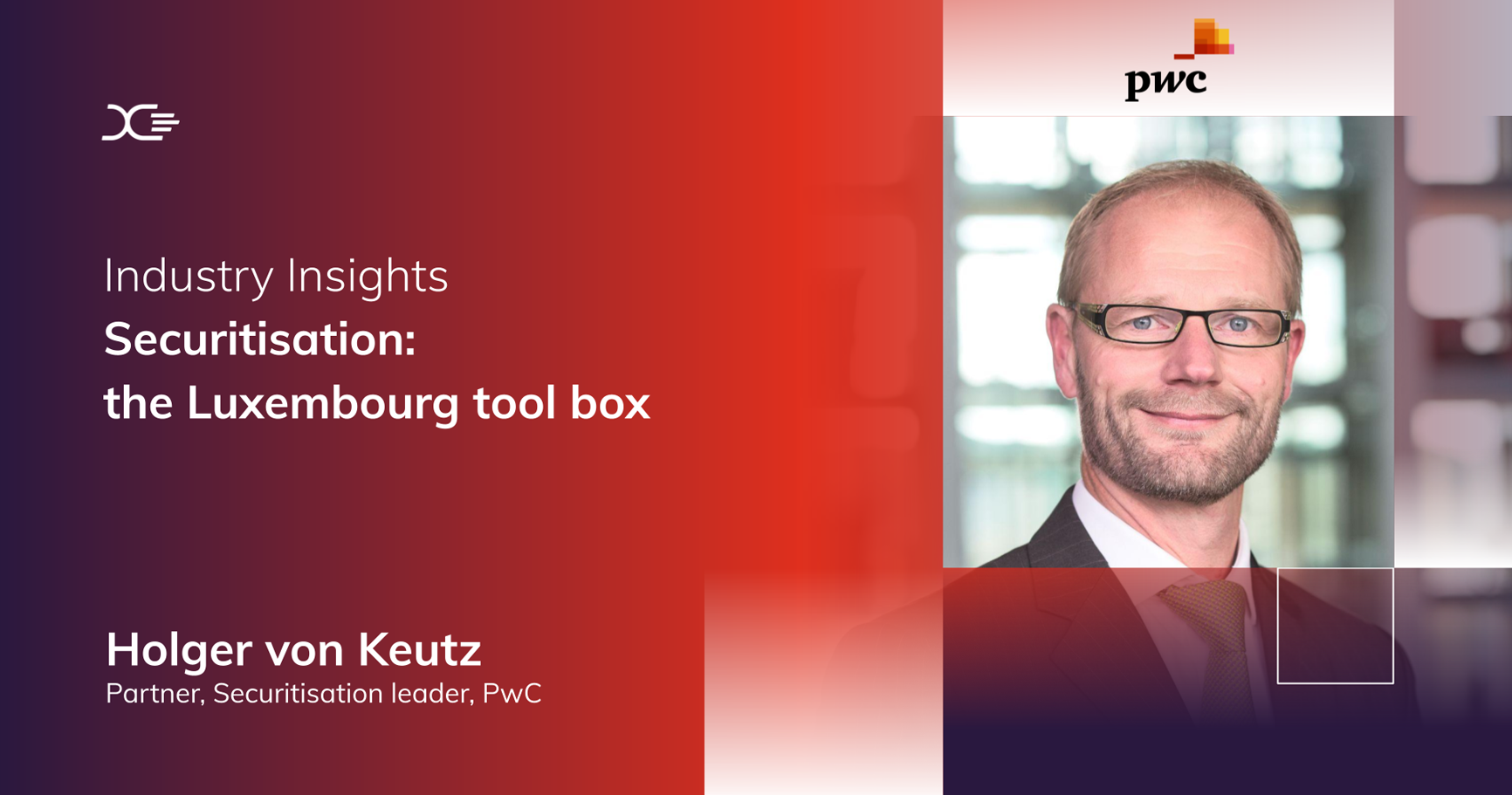Securitisation: active management option to boost Luxembourg hub
Marco Hinz: The amended law presents some significant changes. What was the background to this – had there been requests from industry participants on these topics?
Holger von Keutz: The original law came out in 2004. Within a few years of it coming into force, the industry already recognized that there were some points which were not fully clear. Some of these issues were addressed by the supervisory authority, the Commission de Surveillance du Secteur Financier (CSSF), in a 2007 question and answers [FAQ] document. But an FAQ is not the law, it does not provide the same level of clarity. In addition, active management of [debt funds] was not allowed in Luxembourg, which was seen as problematic since this area of the market has been steadily growing. The industry pushed a lot on this to make it happen, because prior to this it meant that such investment vehicles were being established in other jurisdictions, primarily Ireland and the Netherlands.
The other aspect was that Luxembourg is a major hub for investors from across Europe, but on the liability side there were issues around use of foreign debt instruments from these investors’ home countries, such as Schuldscheindarlehen from Germany. In order to qualify these within the original law there was always a legal opinion necessary. The CSSF would usually agree on that, but it was sometimes a little complicated. Now, they have taken the feedback from the industry into the new law and simplified this aspect. These are the two main topics from an industry standpoint.
Marco Hinz: So, the situation under the original law was that there were a lot of work-around solutions, or additional time or cost?
Holger: That was definitely the case in relation to the refinancing aspect, for the security form when using foreign debt instruments like the Schuldscheindarlehen or a promissory note. On the active management front there was also a kind of work around, using another layer put in between, but that was more complex and not always so clear. Indeed, we should note that even when there is a ‘work around solution’, there may be a lack of clarity or certainty, so investors may prefer to look elsewhere.
Marco Hinz: The amended law presents some changes to the available corporate structures. What normally are the main criteria involved in selecting a specific structure?
Holger: For the corporate structures, we have clearly seen a number of shifts take place over the past years. Initially, the main corporate structure utilised was the SA, because the SA could issue securities to the public. This was at this time not possible with a SARL structure. Then, in 2010 there was a change to allow this. When it was seen that an SARL could also issue securities to the public on the market, we saw a clear trend of people are using the SARL structure because they have reduced capital requirements. Namely there was a reduction of 31,000 euros of the SA down to 12,000 euros of the SARL.
Now, we with the new structures we expect that some of the other structures will be used where also we have a small minimum capital. Notables are the SCS and SCSp, which are tax transparent structures, and we expect these will be widely used. Within the securitisation industry there is an argument that the capital is not really necessary for some structures, because everything is financed by debt. Overall, it seems to be that people are using the structure where you have the lowest minimum capital as possible. It’s quite a simple decision-making choice.
Marco Hinz: You have said that the amendments provide regulatory certainty needed to increase the volume of active-managed CLOs in Luxembourg. How do you think this segment of the market might develop?
Holger: I think new players will come to Luxembourg. Existing players, if they only have structures in a single market, probably they will remain in that jurisdiction. In a situation where they have structures in several locations or if they already have some structures in Luxembourg, they might consider placing everything now in Luxembourg. But it’s difficult to generalise. And decision-making processes take time in these organisations, so any shift may be gradual. When they have an existing set up, they are less likely to move it. But I think for new structures, Luxembourg is now more attractive.
Marco Hinz: Overall, how do you see the amended law in relation to Luxembourg’s position as a securitisation hub? Does it make it more competitive?
Holger: The law was the right move into the right direction. Not only because the law is amended to allow active management, but it also clarified a lot of points which were a little bit unclear to the industry, and now we have them in the law, which gives you the legal certainty.
For the overall environment, it’s good because also a lot of corporate services see Luxembourg as a location where you can offer the best possible solutions for the clients. We have a whole toolbox – there are funds solutions, that are securitisation solutions: you always find the appropriate legal form depending on your assets and your investors. That’s why I think Luxembourg has a great advantage there.
Any views expressed in this interview are the personal views of the interviewee, and do not necessarily reflect the position of CrossLend or its employees. This article should not be construed as investment advice, or relied upon by anyone as legal, accounting, compliance or tax advice, or for any other purposes. This article is not to be construed, under any circumstances, by implication or otherwise, as an offer to sell, nor as a solicitation to buy securities.
Related articles
Securitisation: active management option to boost Luxembourg hub
The overhaul of Luxembourg’s securitisation laws introduced a number of changes, notably allowing for active management and a broader [...]
Originator Spotlight/Lenderwize
A fast-growing trade finance platform, Lenderwize specialises in invoice financing in the digital economy. Currently its platform provides its [...]
Digital lending emerges as an important sub-segment of private debt
Amid increasing breadth within the private debt asset class, specialised investors can allocate capital to sub segments in a bid [...]







